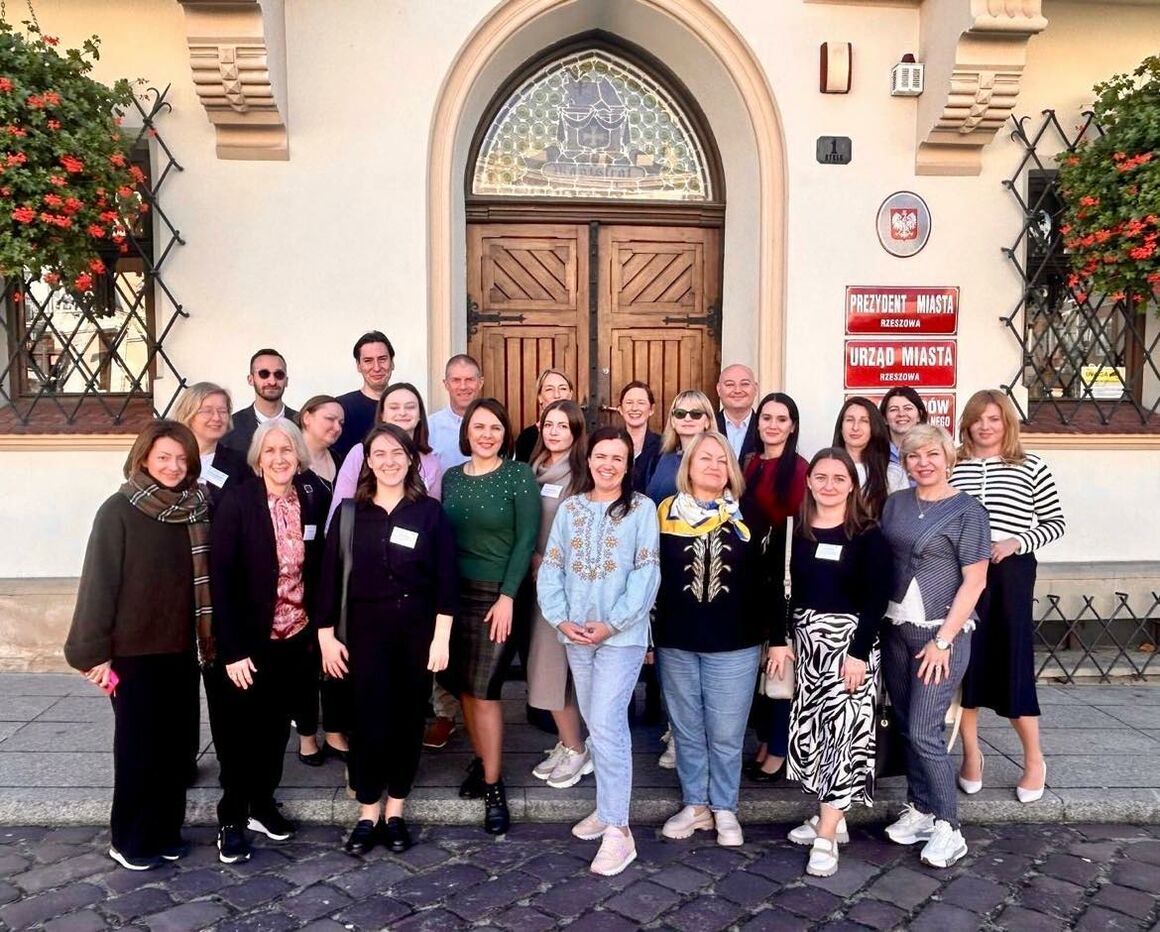ECDC workshop on the role of social and behavioural sciences in addressing stigma and informing vaccination campaigns for Ukrainians living in Ukraine and neighbouring EU countries
A two-day workshop, held from 15 to 16 October 2024 in Rzeszów, Poland, followed up on an earlier ECDC workshop for Ukraine, held in Kraków, Poland, in February, and focused on strengthening the role of social and behavioural sciences in infectious disease prevention, preparedness, and control.

The workshop built upon the ongoing collaboration between Ukraine and ECDC, to support the development of targeted interventions to reduce stigma associated with infectious diseases and increase vaccination uptake for people living in Ukraine and neighbouring countries. It highlighted the critical role of social and behavioural sciences in addressing complex health challenges and reinforced the commitment to collaborative approaches that enhance health security for Ukrainians and communities across the region.
During the two days, the role of social and behavioural sciences in developing people-centred and effective vaccination campaigns, and in addressing stigma around infectious diseases was addressed. Group sessions allowed attendees to follow a systemic, step-wise process in their development of vaccination campaigns, and stigma-related interventions,
The workshop featured a presentation by the Polish Ministry of Health on healthcare services for Ukrainian refugees in Poland as well as a presentation by a representative from Sweden’s Public Health Agency. The latter highlighted the importance of social and behavioural sciences in providing quantitative and qualitative data to inform trust-building strategies and targeted communication amongst a broad range of audiences and wider stakeholders. The presenter also emphasised the vital role of the child health centres as the backbone of the Swedish vaccination programmes, as well as the need for tailored approaches for specific low coverage and vulnerable groups.
An additional presentation by ECDC addressed the global mpox outbreak with over 100 000 cases reported globally, heavily concentrated in the Democratic Republic of Congo. The presentation focused on targeted interventions and community engagement, which used digital platforms to reach high-risk groups and adapted public health responses to shifting transmission patterns.
The workshop concluded with a plenary session where groups presented their outcomes, and summarised key insights. Participants highlighted the usefulness of the systematic approach followed during the workshop for breaking down complex issues, like vaccination acceptance, into specific, manageable parts and emphasised piloting solutions on a small scale before broader implementation. They also stressed the role of trusted community figures, such as religious leaders and primary care doctors, in spreading health information, particularly in rural areas.
In addition, participants focused on diagnosing issues and designing targeted stigma-reduction interventions for HIV, TB, mental health, and substance use. Reflecting on these processes, they underscored the importance of structured yet flexible approaches, combined with strong community partnerships, to effectively tackle stigma and promote positive public health outcomes.
Background
Social and behavioural sciences and health
Social and behavioural sciences focus on the cognitive, social, and environmental factors shaping health-related behaviours. Understanding these influences at individual, community, and population levels makes it possible to develop and refine policies, programs, and communication strategies for better health outcomes.
Utilising social and behavioural sciences entails embracing a multidisciplinary approach that incorporates theories, methods, research, and practical tools from a wide range of fields, such as psychology, sociology, anthropology, communications, and economics, among other disciplines.
EU Initiative on Health Security
As the EU’s neighbouring regions are facing ongoing challenges, collaborative efforts and informed strategies in applying social and behavioural science strategies are becoming increasingly important.
The EU Initiative on Health Security aims to set up a regional workforce responsible for the prevention and control of the challenges posed by communicable diseases and enhancing regional cooperation to tackle cross-border health security threats in the EUs neighbouring regions.







